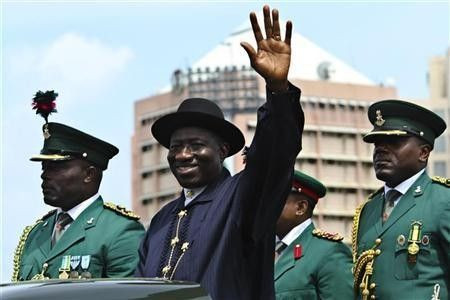Nigerian unions warns president over fuel subsidy

Nigeria's trade unions have warned President Goodluck Jonathan there could be civil unrest if the go-ahead is given to remove the fuel subsidy the government says will cost 1.2 trillion naira this year.
The elimination of the subsidy has for years been one of the biggest political debates among Nigerians, many of whom feel it is the only benefit they get from living in an oil-rich state.
Previous attempts by governments to remove the subsidy have prompted strike action and street protests.
Nigeria produces more than 2 million barrels per day of crude oil but a lack of investment in refineries and infrastructure means almost all of this is exported, while refined fuel products like petrol have to be imported.
Fuel subsidies have been a long-standing policy for Nigerian governments to ease the cost pressures on the country's more than 140 million inhabitants, many of whom live on less than $2 a day.
The National Labour Congress (NLC), an umbrella union group, said uprisings in North Africa and protests around the world against greed are an indication of the backlash the government can expect if it goes through with the deregulation.
The NLC has said it will organise events to get Nigerians ready to resist the subsidy removal, which the government wants to begin fazing out from the beginning of next year.
The global protests was a red card for the ruinous programmes of subsidy removal and cuts in social spending and an indication that the North Africa uprising is spreading, said Owei Lakemfa, NLC general secretary.
The federal government should face this reality and address growing poverty, hunger and anger amongst the masses. Save beneficiaries of government largesse, no employer utilizing petroleum products will endorse subsidy removal.
Jonathan, his economic management team and the powerful governors of Nigeria's 36 states have all agreed the subsidy should go. The government has promised to provide safety nets for the poor to compensate them for higher fuel costs.
The national assembly is debating the proposal but some lawmakers are concerned about where the saved funds will be spent, given the previous mismanagement of subsidy money.
Ending the subsidy has been met with optimism by many international investors, who believe it is inefficient, fuels corruption and holds back sub-Saharan Africa's second-largest economy from reforming its downstream oil sector.
But many Nigerians say they would like to see the government cut costs from wealthy politicians before asking for more money from subsistence workers.
© Copyright Thomson Reuters 2024. All rights reserved.





















